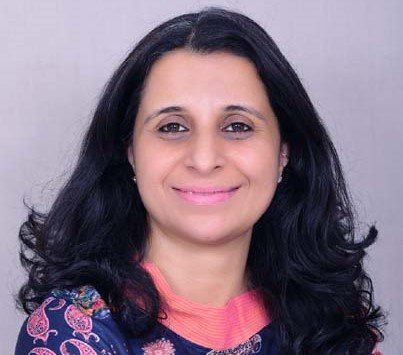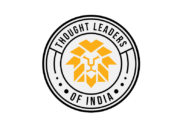Reetu Raina
Reetu is Vice President and Global Head of Talent Management at Amdocs. She has held HR Leadership roles previously with Sterlite (Vedanta Group), Amdocs and HDFC Bank
Prior to HDFC Bank she has worked with Godrej and Tata AIG Life insurance. In her over two decades of experience in HR she had led various transformations.
She was also invited by UNICON conference by Harvard Business School held in Mumbai in 2016 to share her insights on “Contextual realities of emerging markets on building future leadership preparedness”
She has pioneered the concept of “G-Localized Leadership” and her work on “Engaging Indian Millennial” was published by Society of Human Resource Management (SHRM) and widely acknowledged.
Reetu is speaker at various prestigious institutes in India like IIT, Delhi College of Engineering AMITY university where she shares insights in building careers in technology
She has been recently recognized with HR leadership award by Observe Now. She regularly features as HR voice in ET HR World, People Matters and other columns.


Our Exclusive Interview:
1. What is the one quality you admire in today’s leaders and what is the one quality you find lacking them?
I like leaders who are empathetic, and I feel that resilience which is one of the most needed qualities in today’s time is lacking in many leaders. During good times leaders enjoy being in Center. IT is during the tough times they need to show resilience and hold on to the teams
2. What does work life balance mean to you?
I think the definition of work life balance has undergone a huge transformation. With digitization work has become boundary less so it all about the delicate dance between work and life.
3. Who do you look up to for inspiration?
I draw my inspiration from my husband He is an entrepreneur. The way he deals with situations and drives things in the right direction always inspires me
4. What was the last book you read and how did it impact you as an individual?
There are many books which I have read but one book stands out is written by Daniel Kahneman an award-winning book called Thinking, Fast and Slow. Though it’s about physiology, the beauty about the book is it talks about
How do we create the realities through our thought processes?
How do we tend to be effective or ineffective?
Most of the things are creation of the judgment and prejudices and not data and how do we deal with them.
5. What do you do to rejuvenate, to get back in touch with yourself?
I mediate and do it regularly. Every human has 2 facets to draw energy externally like partying, socialising, conversation with people, etc and internally. I drive my energy internally I meditate on weekends for longer times like an hour and half. It helps me to get in patch with myself. As professionals there is lot of noise around us when we are delivering tasks and it’s very easy to be carried away with that noise. This may cause stress as somethings we like and somethings we don’t like. So having a conversation with yourself gives an insight about the stress source and how we can detach or disassociate my reaction to that behaviour
6. Your take on open door policy.
It’s a must in today’s time. We must understand the changes happening in workforce over last 2 decades. The millennials, Gen Y and Gen Z is a major part of the workforce. Communication has become open. There is hyper linked communication, the generation is expecting transparency and openness. The only thing the open-door policy helps is to create a dialogue and creates feeling of trust and transparency. If we want to create more passionate and engaged workforce, we need to have open door policy.
7. What is your suggestion to improving corporate India’s D&I quotient.
D & I is a must to have and not nice to have. If you want to have varied thought processes becoming the input for your decision to lead the organisations, it needs to have the right representation across both in leadership and different layers of organisation. D&I helps to create equal world and only equal world can be a fulfilling world.
Unfortunately most of the organisation run D&I only as a target and not deep rooted culture change. Targets can help you to drive good diversity hiring but sustenance of hiring will completely depend on how you enable diverse candidates within organisations
8. In today’s day and age, how can leaders build a culture of employee wellbeing?
Wellbeing was welfare previously dealing with safety only. Now the ecosystem has changed. Too much of information, too much of performance pressure adds to adrenaline rush. If organisations want to be productive and great, they need people who are balanced. To create that balanced workforce we need to create the environment of wellbeing. Let people know its ok to go slow phase, its ok to falls and its ok to not get 10-10. Healthy employees make healthy organisation. For this we need to consider employees as an emotional person who are going through a journey while delivering organisational tasks and not just performance machine.
9. Your perspective on sustainability and how do you promote it?
We have been lacking in sustainability. It must be thought as a priority. At a policy level there are great things happening where organisations have regulations as to how ESG is made part of their own goals, how employee is scored on sustainability matrixes and how they are penalised when they don’t follow it. But as organisation we also must think what we want to give back to our next generation.
10. If not a corporate leader, what would your professional identity be?
A writer or a coach. Because I love connecting with people at different levels, to understand where they are coming from and what makes them tick.
Know the Person
1. Loyalty to you is Being honest
2. Fun and recreation to you is Being with people I love
3. Experience vs Education – what would you give higher preference to Experience
4. Mountains or the beach: your ideal vacation spot would be Mountain
5. Horror, Action, Adventure, Romantic, Comedy – your favourite genre Comedy
